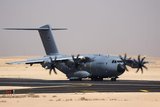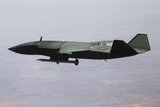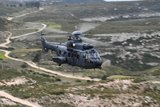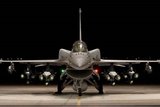Netherlands signs deal for eight PC-7 MKX training aircraft
The PC-7 MKX is based on the PC-7 MkII trainer platform. (Photo: Pilatus)
The Dutch Ministry of Defence (MoD) has announced it has signed two contracts to purchase eight new PC-7 MKX training aircraft and four new simulators, upgrading its fleet for its elementary military pilot training.
According to the MoD, the first contract deals with the purchase of the aircraft and simulators, while the second deals with maintenance of the equipment over the first five years.
Currently, the Royal Netherlands Air Force trains its pilots using the Pilatus PC-7 training aircraft, of which it has 13 in its fleet. The MoD anticipates that these aircraft will be replaced by the PC-7 MKX type by the end of 2027.
Related Articles
Babcock wins €795 million contract to support French Air Force training
The Royal Netherlands Air Force is the launch customer for the PC-7 MKX, although Pilatus is reportedly involved in “additional tenders” for this trainer. In January 2025, France signed a contract for 22 PC-7 MKX aircraft to train its cadets.
The MoD stated: “We have had a long and good relationship with Pilatus. With the contract signing for a state-of-the-art learning environment we are extending this partnership for another 30 years.”
Markus Bucher, CEO of Pilatus, commented: “We’re delighted to announce this contract for our new PC-7 MKX training system. This marks the beginning of a new era of basic flight training in the Netherlands, which – I am sure – will set a new standard that other air forces will seek to follow.”
Related Equipment in Defence Insight
More from Air Warfare
-
![Saudi Arabia air report: The world’s fourth-largest UAV market seeks to strengthen domestic industry]()
Saudi Arabia air report: The world’s fourth-largest UAV market seeks to strengthen domestic industry
With $9.18 billion in uncontracted programmes — including a potential multi-billion-dollar MQ-9B deal — Saudi Arabia’s UAV sector is poised for significant further growth and industrial expansion.
-
![AI mission-autonomy software integration and partnerships see progress across CCA efforts]()
AI mission-autonomy software integration and partnerships see progress across CCA efforts
The successful integration of third-party mission autonomy in the US Air Force’s CCA programme and movement on Helsing’s Europa CA-1 timelines mark key milestones in the development of uncrewed aerial capabilities.
-
![Airbus Helicopters is deepening its European reach as NATO orders climb]()
Airbus Helicopters is deepening its European reach as NATO orders climb
Airbus has delivered more than 2,000 helicopters to nations across Europe, and continues to solidify its position at the heart of the region’s defence industrial base.
-
![Singapore Airshow 2026: Rafael highlights tailored effector solutions for different operational needs]()
Singapore Airshow 2026: Rafael highlights tailored effector solutions for different operational needs
Shephard spoke with Rafael’s CEO about the company’s effector offerings as well as his perspective on one-way attack drones.
-
![World Defense Show 2026: L3Harris to achieve full-rate production of Viper Shield soon]()
World Defense Show 2026: L3Harris to achieve full-rate production of Viper Shield soon
L3Harris has completed the production candidate software load for its Viper Shield airborne electronic warfare system and is conducting sea trials with its VAMPIRE counter-drone system.























